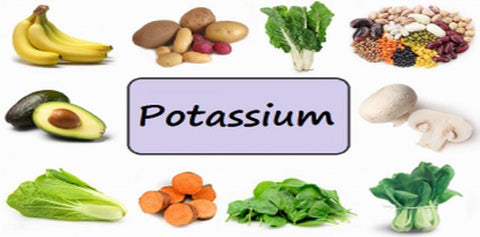Proven Health Benefit of Pomegranate Juice
Drink Pomegranate Juice for more Potassium intake – this is the new secret to lower blood pressure and reduce stroke risks
The US Food and Drug Administration has a reputation of rigidity in granting claims to health benefits from food. So far, the FDA only allowed 14 health benefits claims for conventional foods and dietary supplements. A health claim, in the language of the FDA, characterizes the relationship between a substance and a reduction in the risk of contracting a particular disease.
One of which is the benefit of Potassium intake. The allowed claim reads as “Diets containing foods that are a good source of potassium and that are low in sodium may reduce the risk of high blood pressure and stroke."
Contrary to a widely accepted belief, the FDA rejected claims that green tea reduces risk of heart diseases in May 2006. The FDA previously has said that green tea likely does not reduce breast, prostate or any other type of cancer risk.

Potassium is an essential mineral micro nutrient in human nutrition; it assists in muscle contraction and in maintaining fluid and electrolyte balance in body cells. Potassium is also important in sending nerve impulses as well as releasing energy from protein, fat, and carbohydrates during metabolism. Without adequate potassium in our body, we wouldn't get much done. Nerves need it to tell muscles what to do, and muscles need it to do what they're told. It helps keep our body's fluids in balance and regulate our blood pressure.
High levels of potassium may reduce the risk of hypertension and stroke. Many people at risk of high blood pressure keep a keen eye on their sodium intake, but few think about increasing their potassium. Not only can potassium help lower blood pressure, some experts feel it may offer additional stroke-protection benefits. One study examined 859 men and women over age 50. Results revealed that those who took in more than 3,500 milligrams (mg) a day had a much lower incidence of fatal stroke than those who consumed less than 1,950 mg daily.
The 2004 guidelines of the Institute of Medicine specify an RDA (Recommended Dietary Allowance) of 4,700 mg of potassium. However, it is thought that most Americans consume only half that amount per day. Similarly, in the European Union, particularly in Germany and Italy, insufficient potassium intake is widespread, based on some reports.
Many foods contain potassium, yet shortage of potassium intake is a common issue. Why? One reason is that Potassium is water soluble, so leaches into water during cooking. A boiled potato, for example, loses at least half its potassium to the water it's boiled in. To reduce this loss, try steaming, microwaving, sauteing or even frying vegetables instead of boiling them. Keep the cooking water and add it to soups, stews and casseroles to increase their potassium content.
Eating fresh fruits and vegetables, whole grains, and fresh meats such as fish are good ways to ensure higher potassium intake. Foods with high sources of potassium include bananas, orange juice, avocados, celery, parsnips and turnips.
Benefits of Pomegranate Juice You Should Know
Above all, researches lately has shown that pomegranate, an ancient yet overlooked fruit contains one of the highest level of potassium, on top of wonderful antioxidants such as Polyphenols. This probably explains why pomegranate, especially its conveniently consumed juice is fast becoming the star drink in the US and European markets.
There are many brands of pomegranate juices on the shelf of supermarkets. What’s the difference? You have to look carefully on the nutrition label: is it pure juice or from concentrate? Most of the ‘from concentrate’ juice are not only diluted with large amount of water but also added with sugar – which is certainly not good for health.
You should look for pure pomegranate juice – 100%! The most recognizable pomegranate juice in Singapore is Pomegranate 100% Pure Organic Juice. It is 100% pure organic juice selling at near the price of non-organic products. PomeFresh juices are not added with any sugar or preservative or additives.
While Asian diet tends to have more vegetables traditionally, Asians in generally take less raw food including fruits, with Japanese as an exception. It is possible that Japanese takes in more Potassium than others. This could be a better explanation on why Japan has low mortality from coronary heart disease (CHD) while CHD has become the top killer in most affluent societies, if FDA’s rejection on green tea benefits is to be agreed.
As overdose of potassium is very unlikely, why not do your best to take in as much potassium as you can for the sake of lower blood pressure and better heart?

